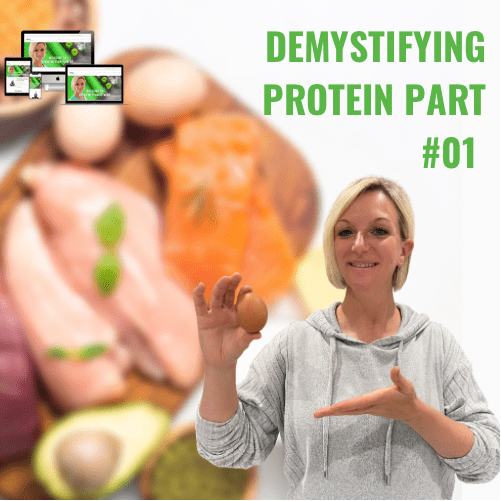WHAT IS PROTEIN?
Protein is incredibly important, and without it our body composition and health greatly suffer as a result.
Proteins are an essential nutrient and can be broken down into 20 building blocks known as amino acids.
Out of these 20 amino acids, 9 are considered to be essential as the body cannot synthesise its own, meaning we must obtain these from animal and plant sources. The other 11 aminos can be synthesised by the body, making them non-essential.
PROTEIN QUALITY
When considering a protein source, one of the most popular methods is to classify the food by its biological value (BV).
The biological value of a protein is based on its quantity of the essential amino acids. So a food with a high BV (also known as a complete protein) contains all 9 essential aminos. This is commonly seen in animal and dairy products.
COMPLETE PROTEINS
Eggs
Poultry
Milk
Soybeans
Beef
Quinoa
INCOMPLETE PROTEINS
Cereal
Legumes
Grain
THE ROLE OF PROTEIN
When we do consume sufficient amounts of high quality and complete proteins, it has a whole host of benefits.
Proteins provide building materials – amino acids – for growth and repair of body tissues.
Proteins form vital parts of most body structures, such as skin, nails, hair, membranes, muscles, teeth, bones, organs, ligaments and tendons.
Proteins facilitate numerous chemical reactions in the body; all enzymes are proteins.
Some proteins act as chemical messengers, regulating body processes; not all hormones are proteins.
Proteins assist the body in maintaining its resistance to disease by acting against foreign disease-causing substances.
Proteins help regulate the quantity of fluids in body compartments.
Proteins act as buffers, to maintain the normal acid and base concentrations in body fluids.
Proteins move the required nutrients and other substances into and out of cells and around the body.
Protein can be used to provide calories (4 calories per gram) to help meet the body’s energy needs.
PLANT & DAIRY PROTEIN SOURCES
1g edible protein per 100g in weight
Pumpkin Seeds – 32.47g
Peanut Butter – 25.09g
Cheddar Cheese – 24.90g
Peanuts – 23.68g
Almonds – 22.09g
Tofu – 17.19g
Fried Eggs – 15.03g
Cottage Cheese – 12.93g
Lentils – 9.50g
Lima Beans – 7.80g
ANIMAL PROTEIN SOURCES
Bluefin Tuna – 29.92g
Chicken Dark Meat – 28.99g
Turkey White Meat – 28.48g
Cooked Salmon – 25.56g
Lamb Cooked – 24.52g
Duck – 23.48g
Pork Chop – 21.91g
Chicken White Meat – 16.79g
I Hope this has peaked your interest? Check back in for Demystifying Protein Part 2 tomorrow where I’ll share with you how much protein you should be eating daily.
Jayne ?????

